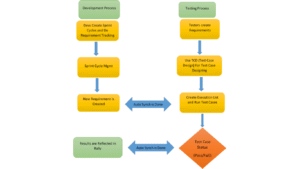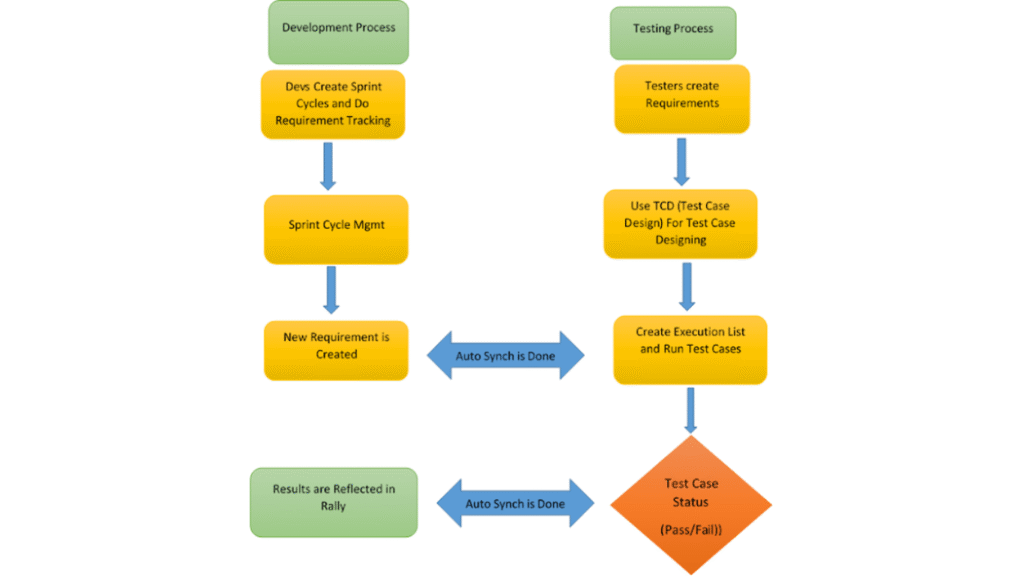Introduction
In today’s fast-paced professional world, achieving a harmonious balance between work and personal life has become a challenge for many, especially in demanding roles like that of a business analyst (BA). A business analyst plays a pivotal role in bridging the gap between business needs and technical solutions, ensuring projects are delivered on time, stakeholders are satisfied, and goals are met efficiently. However, the intensity and complexity of the BA role often result in long hours, constant multitasking, and high stress levels, making it difficult to maintain a healthy work-life balance.
Work-life balance is not just about managing time effectively—it’s about creating boundaries, setting priorities, and fostering a lifestyle where professional and personal commitments coexist without one overshadowing the other. For business analysts, this balance is particularly crucial, as their ability to perform at their peak depends on mental clarity, focus, and overall well-being. When a healthy work-life balance is neglected, it can lead to burnout, reduced productivity, and even strained personal relationships.
Fortunately, by following a few structured steps, BAs can regain control over their schedules and achieve a balanced lifestyle. These steps focus on practical strategies to manage workload, maintain clear boundaries, and make time for personal growth and relaxation. Implementing these techniques not only enhances job performance but also contributes to overall happiness and satisfaction in life.
we will explore five essential steps to maintain a work-life balance as a business analyst. These include setting boundaries between work and personal life, prioritizing tasks to focus on what matters most, leveraging technology to streamline workflows, delegating responsibilities where possible, and taking regular breaks to recharge. Each step is designed to address the unique challenges faced by business analysts, offering actionable solutions to foster a more balanced and fulfilling professional journey.
By committing to these practices, business analysts can achieve a more sustainable lifestyle where their career ambitions and personal aspirations are not in conflict but rather complement each other. Let’s dive into these five steps to unlock the secrets of maintaining a healthy work-life balance while excelling in the dynamic and rewarding field of business analysis.
Here are some of the greatest tips for business analysts to go by so they can live a comfortable, trouble-free personal and professional existence. Check out the business analysis training online to learn more.
1.Have An Envisioned View Of Your Existence
You ought to examine yourself and consider the kind of life you would like to lead. Think about how your personal and professional lives interact in this situation. After that, you have to have a clear idea of your surroundings and your ideal daily schedule, including your morning and evening hours. During the day, as a business analyst and a family member, you have to put in your best effort to provide the desired outcomes.
Make sure to spend quality time with your loved ones. Consume a balanced diet, get regular exercise, schedule time to work on other projects, go to special events, complete household duties, and take breaks to recharge and regroup.
Use the priorities you’ve established to ensure that your unwavering act will result in the behaviours and activities that will support you in realising your goals. Along with defining the most important priorities that will help you achieve your goals right away, you also need to establish the non-negotiable priorities—not the crises.
Certain priorities, like getting plenty of sleep and avoiding pointless events, can be dropped. Nonetheless, your conclusion should still be firm and unambiguous: in order to improve your work-life balance, you must have the greatest possible vision for what you want to accomplish. To generate such visions, you must seek concepts that will elevate your entire way of thinking.
2.Always Have Daily Set Priorities
Remember that you must establish your top three priorities for the day as you get up each day. This will help you get through the most of your day. If you find yourself with a half-hour or so of free time, concentrate on completing the top three priorities on your to-do list rather than working on your lower priorities. These are the top three things you should think about as soon as you get up since they will be used to establish the day’s aim, value, success, and contributions.
Every three days, you should determine these priorities, achieve your goals, and then create new priorities that will take their place right away. You should have a thorough, measurable plan in place to assist you in handling these priorities if you find that they are taking longer than five days to resolve.
As a result, you ought to swap out those priorities for more manageable ones that are more concentrated. It is typical to experience stressful days with full firefights, though, as this indicates that you are working in a complex and difficult setting. On the other hand, if you have lazy days when you don’t feel like working and priorities things less, you know you have problems and need to get aid to help you manage the burden.
3.Have A Trackable Time
You should give yourself a recorded, trackable time for at least a week, which will help you understand how you spend your time working out at home with your family. Whatever progress or accomplishments you make, you must document them in order to ultimately determine how much time you have spent on each activity. This will support both your priorities and all of your interests.
It won’t be until you discover that you have gained some valuable time back from your work and personal schedule that you will realise you are changing for the better. That way, you’ll be able to carve out some time for yourself and you won’t be sorry you had such a great idea. By allocating a trackable time for each daily task, you may enjoy the good times. You will be content and eager to adhere to those everyday routines to guarantee that you properly balance your personal and professional lives when you rely on such activities even after you have tracked yourself.
4.You ought to come first for yourself.
Always keep in mind that you are a business analyst, and that means your projects could suffer if you don’t give them your full attention.
In light of this, constantly try your hardest to make sure you have the time and resources necessary to see your tasks through to completion.
Incorporating first-hand information into all of your projects will enable you to perform flawlessly and provide the finest possible outcomes for both the company and society at large.
Since that will help you accomplish the project goals, you must always make sure that you properly advise the firm on management and how projects should be carried out. Your events and work also matter greatly, therefore you should never take it lightly when it comes to sacrificing the time you have for your projects.
To ensure that all of your initiatives are handled properly, you must put aside your personal attachment to privacy. Make sure you have the necessary alone time so that you may catch your breathtaking moments and relax a little bit after successful projects at your workplace.
You must reach some level of understanding, replenish your energy, and acknowledge your responsibilities. If you are struggling to strike a balance between your personal and professional lives, it may be because you don’t value yourself highly enough. In this case, it is imperative that you put your needs first.
5.You Need To Make BA Daily Assessments After Every Day
In the dynamic field of business analysis, the significance of daily assessments cannot be overstated. These evaluations serve as a cornerstone for maintaining the momentum of projects and ensuring alignment with business objectives. Each day, business analysts should review their progress, challenges, and the evolving needs of the project to stay on track and adapt to any changes in the business environment.
Daily assessments allow analysts to critically examine their contributions and project trajectories. This practice helps in identifying potential risks early and strategizing effective mitigation plans. It also fosters a culture of continuous improvement, as analysts can refine their strategies, tools, and approaches based on the insights gathered from these daily evaluations.
Moreover, these assessments provide an opportunity for collaboration and communication within the team. By sharing daily findings and feedback, team members can synchronize their efforts, enhancing the overall productivity and cohesion of the group. This proactive approach minimizes misunderstandings and ensures that all team members are aligned with the project’s goals and deadlines.
Incorporating daily assessments into the workflow of a business analyst not only optimizes project outcomes but also contributes to personal and professional growth. It encourages analysts to be agile, responsive, and proactive, qualities that are indispensable in the fast-paced business world. Thus, making daily assessments a routine practice is essential for any business analyst aiming to deliver high-value solutions and drive successful project completions. Check out the business analysis course online to learn more.
Conclusion
In conclusion, maintaining a healthy work-life balance as a business analyst involves implementing structured strategies that allow for productivity at work while preserving personal time. The five steps discussed provide a foundation for this balance: setting boundaries to protect personal time, prioritizing tasks effectively, leveraging technology for efficiency, delegating responsibilities, and scheduling regular breaks. By adopting these practices, business analysts can manage their professional responsibilities without compromising their well-being or personal life. This balance is crucial not only for individual health and happiness but also for sustaining long-term productivity and success in a demanding career. Embracing these steps will enable business analysts to thrive both in their careers and personal lives, fostering a fulfilling and sustainable professional journey.

























